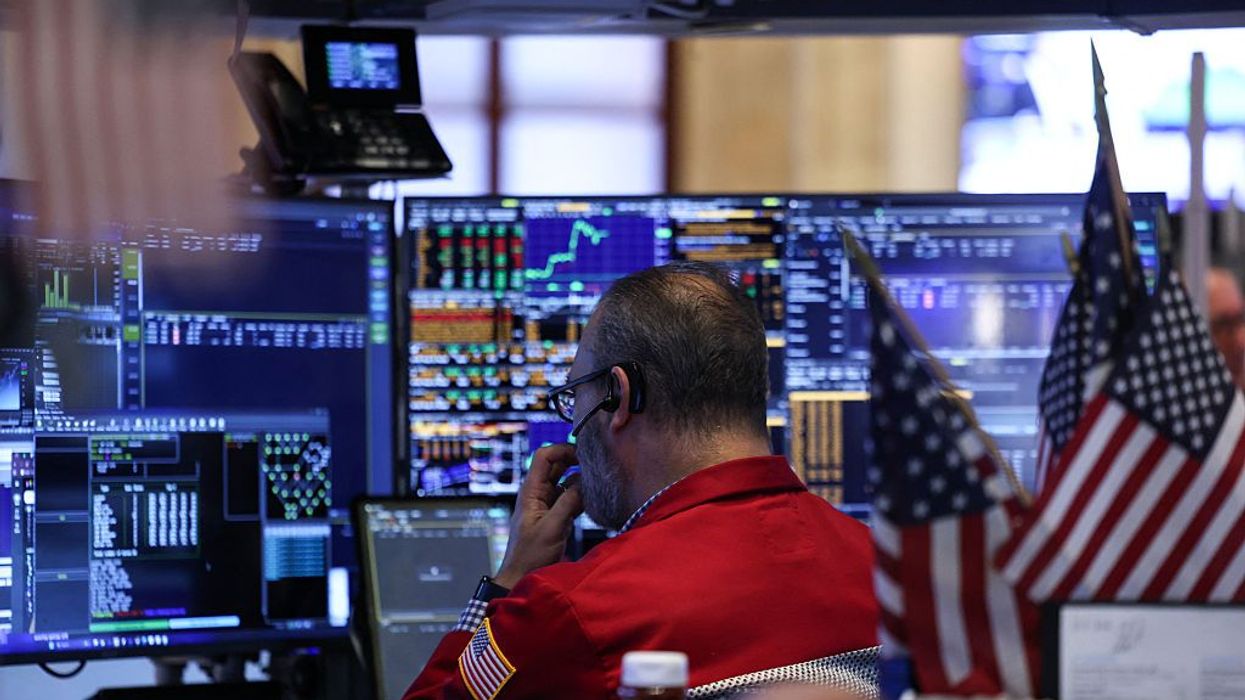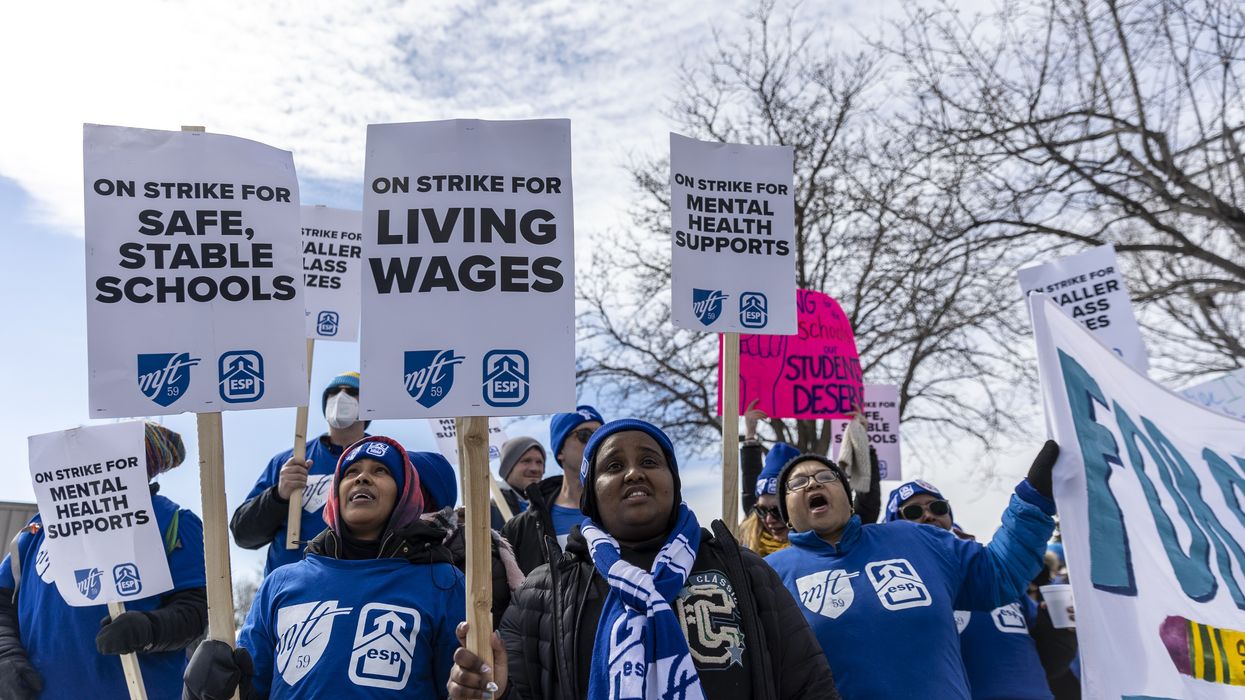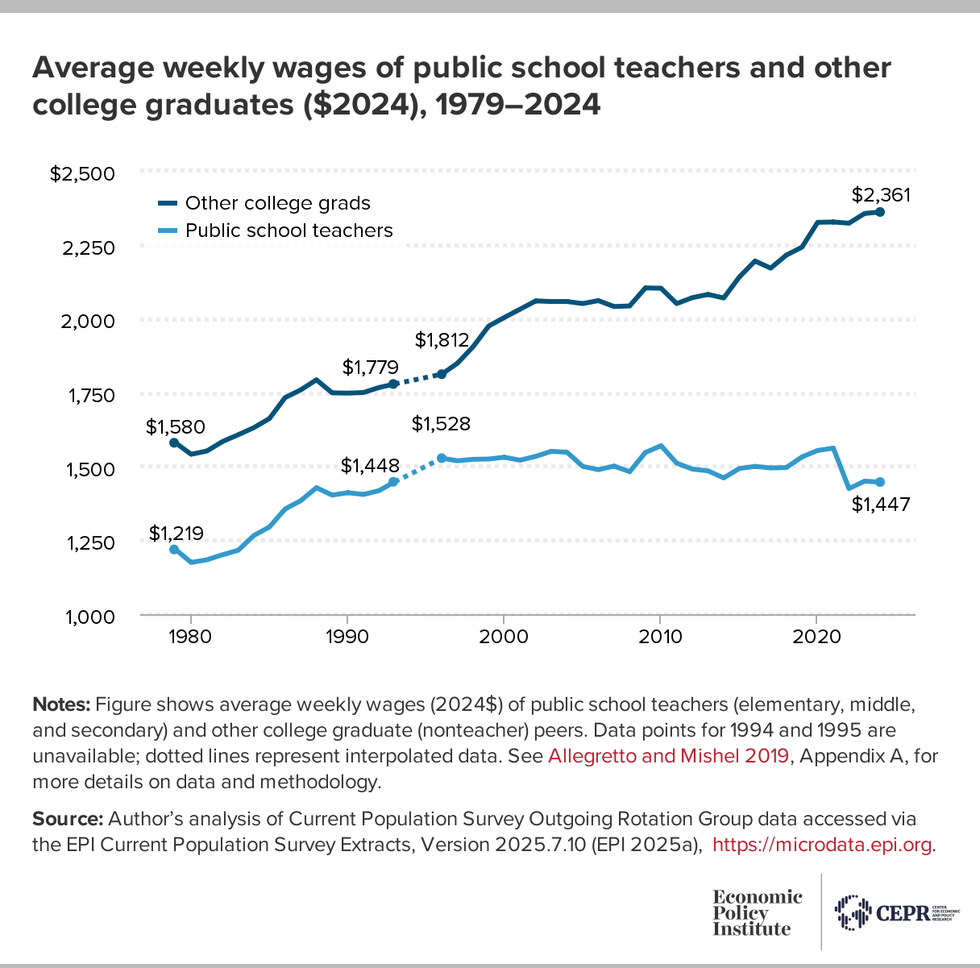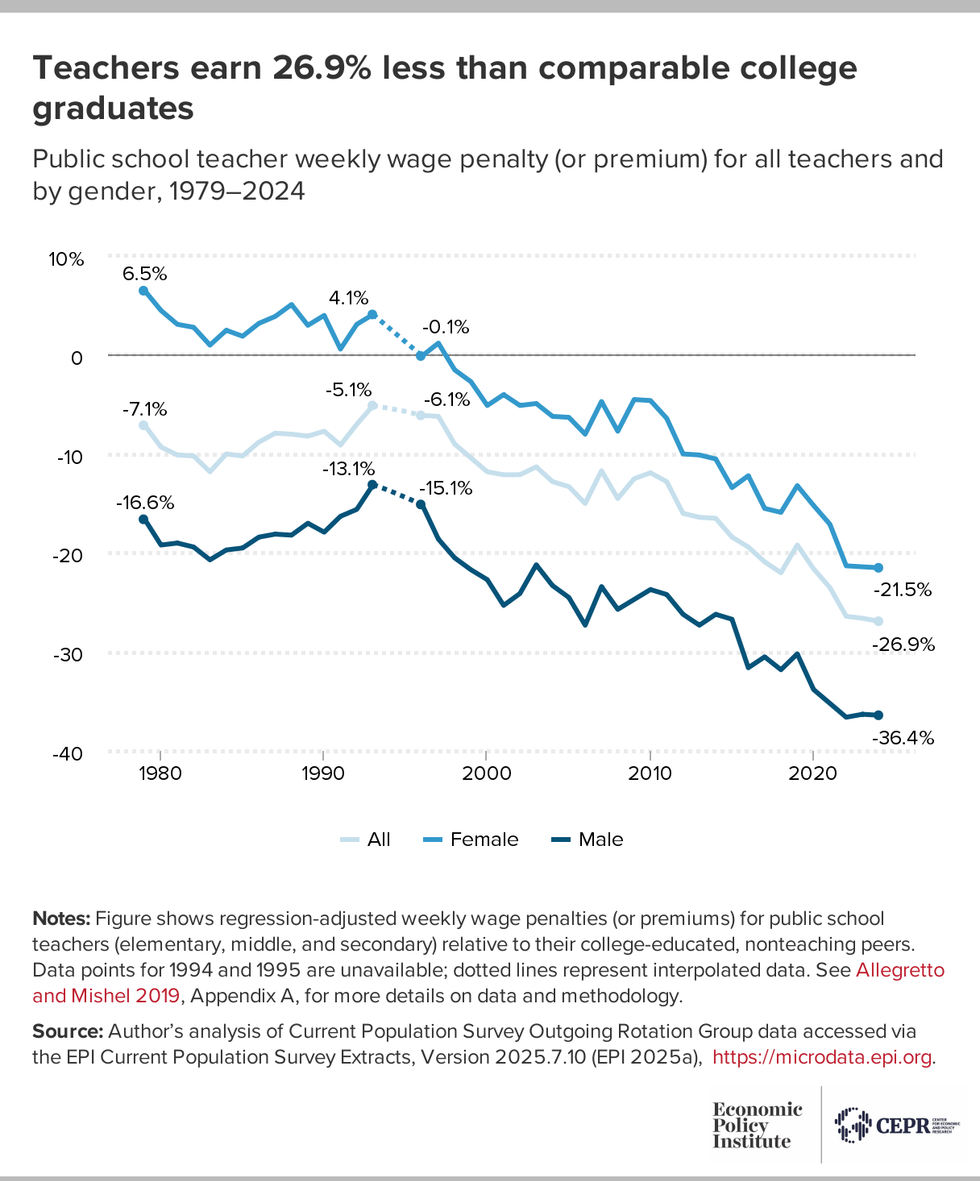‘Yikes’: New Jobs Data Further Undermines Trump Fiction of Thriving Economy
"The booming job market exists only in Donald Trump's demented head," said economist Dean Baker.
Economists on Wednesday expressed significant concerns after new data from global payroll processing firm ADP estimated that the US economy lost 32,000 jobs last month.
As reported by CNBC, small businesses bore the brunt of the job losses, as firms with fewer than 50 employees shed a total of 120,000 jobs, more than offsetting the 90,000 in job gains reported by firms with 50 or more employees.
The loss of 32,000 jobs in November marked a major miss for economists' consensus estimate of 40,000 jobs added on the month, and CNBC noted that the total number of jobs lost according to ADP data "was the biggest drop since March 2023."
Heather Long, chief economist at Navy Federal Credit Union, noted in a post on X that the job losses recorded by ADP were widespread across the US economy.
"Yikes," she wrote in reaction to the report. "Most industries were doing layoffs. The only ones still are hiring are hospitality and healthcare."
Long also said the disparity between small and large businesses in terms of job growth was more evidence that the US is experiencing a "K-shaped" economy in which those at the top of the economic ladder thrive, even as everyone else struggles.
"Larger companies are still hiring," she explained. "Smaller firms (under 50 workers) are doing the layoffs. It's been a very tough year for small biz due to tariffs and more selective spending from lower and middle-class consumers."
Kevin Gordon, head of macro research and strategy at the Schwab Center for Financial Research, observed that ADP hasn't reported such a big drop in small-business employment since October 2020, when the US economy was suffering through the peak of the Covid-19 pandemic.
Alex Jacquez, chief of policy and advocacy at Groundwork Collaborative, cautioned against reading too much into ADP data, although he added that "in the absence of up to date government payrolls, all other signs point to a further deteriorating labor market."
Charlie Bilello, chief market strategist at financial planner Creative Planning, argued that the ADP jobs numbers were part of a negative three-month trend in which the US economy lost an estimated 4,000 jobs per month, which he said was "the first three-month decline since the 2020 recession."
Bilello added that "a year ago, we were adding over 200,000 jobs per month."
Diane Swonk, chief economist at accounting firm KPMG, argued that the ADP report showed job losses in the US economy were "broad based" and "were accompanied by a cooling of wage gains" for workers who still have jobs or are switching from one job to another.
"Those with a job are clinging on, while those without are left wanting," she explained.
Dean Baker, senior economist at the Center for Economic and Policy Research, argued that the ADP report blows up President Donald Trump's spin about the health of the US economy.
"The booming job market exists only in Donald Trump's demented head," he wrote.




